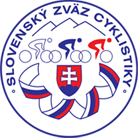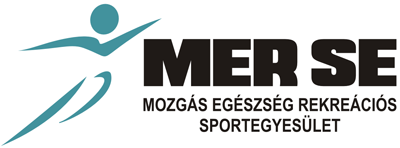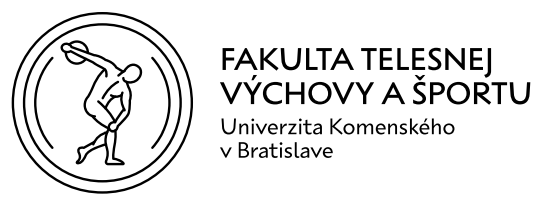Training should adapt to the athlete´s personality, which enables him/her to achieve the highest individual performance by developing the functional possibilities of the cyclist, ensuring a perfect mastery of rational techniques, developing his/her moral and wilful qualities, enabling him/her to gain practical and theoretical knowledge and influence the versatile development of his/her personality. Cycling training is characterized by extraordinary stress, high volume, and intensity, which only exceptionally disposed of individuals, can handle. The difficulty of training requires the athletes to adapt their living regime to training and competition conditions.
The innovation of this project lies in:
- identification of the newest trends in sports theory and practice;
- joint collaboration among experts from different countries and settings;
- co-production of innovative training content using digital technologies.
Project C-Trends is a European project, which involves six partners from different geographical areas, representing a very diverse mix between central and southwestern European and Mediterranean organisations active in the field of cycling. They have all joined the partnership to collaborate internationally to co-create different project outputs that will benefit them all. This European collaboration is based not only in the exchange of expertise, trends, best practices to get an insight into international cycling innovations but also in the production of digitalised outputs that will be used by their organisations to provide education and training to their members, targets of this project.
This collaborative partnership gathers six European partners: two cycling federations, a Faculty of Physical Education and Sports, one sports club, one centre for performance excellence in cycling and a leading research & development centre.

Project Overview
Training should adapt to the athlete´s personality, which enables him/her to achieve the highest individual performance by developing the functional possibilities of the cyclist, ensuring a perfect mastery of rational techniques, developing his/her moral and wilful qualities, enabling him/her to gain practical and theoretical knowledge and influence the versatile development of his/her personality. Cycling training is characterized by extraordinary stress, high volume, and intensity, which only exceptionally disposed of individuals, can handle. The difficulty of training requires the athletes to adapt their living regime to training and competition conditions.
The innovation of this project lies in:
- identification of the newest trends in sports theory and practice;
- joint collaboration among experts from different countries and settings;
- co-production of innovative training content using digital technologies.
Project C-Trends is a European project, which involves six partners from different geographical areas, representing a very diverse mix between central and southwestern European and Mediterranean organisations active in the field of cycling. They have all joined the partnership to collaborate internationally to co-create different project outputs that will benefit them all. This European collaboration is based not only in the exchange of expertise, trends, best practices to get an insight into international cycling innovations but also in the production of digitalised outputs that will be used by their organisations to provide education and training to their members, targets of this project.
This collaborative partnership gathers six European partners: two cycling federations, a Faculty of Physical Education and Sports, one sports club, one centre for performance excellence in cycling and a leading research & development centre.

Aim & Objectives
Aim
The aim Cycling Trends in Education, Training and Diagnosis is to design, develop and test attractive and interactive training materials on sports performance in different cycling disciplines specifically adapted to the current technical equipment and rules. These materials contain new, more updated procedures and methods and will constitute a starting point for improving training programs based on newest findings in sports theory and practice. The developed materials contribute towards sustaining trainers in their skills development and support them in increasing their qualification as trainers/coaches and high-level athletes.
The project aims to:
- Contribute towards sustaining trainers in their knowledge, skills, and competence development;
- Exchange expertise and good practice at the expert level and identify new trends in cycling;
- Share existent training tools & methods;
- Create synergies & cooperation at the international level among organisations that excel in cycling;
- Jointly design, develop, and test materials that will enhance the abovementioned;
- To promote the benefits of cycling.

Outputs
The project produces the following outcomes:
IO1: IO1 – Digital Platform & Interactive Resources providing trainers and cyclists of all ages and performance levels with OER (Open educational resources) in five disciplines (road cycling, track cycling, mountain biking, cyclocross, cycling for the disabled) and containing relevant and updated information in different areas of cycling; available in six languages: English, Slovak, Spanish, Portuguese, Hungarian, Greek.
IO2: Methodological E-Guide for Trainers containing methodological guidelines for trainers and professional cyclists to improve their training and sports performance in five disciplines (road cycling, track cycling, mountain biking, cyclocross, cycling for the disabled); available in six languages: English, Slovak, Spanish, Portuguese, Hungarian, Greek.
The output contains the methodological guidelines for trainers with a compilation of materials and resources, which help trainers to improve their sports performance and eliminate risks from over-training and/or performing inappropriate structure of training load, improve their dietary needs and mental health and many others.
IO3: Software Development consisting of a software solution to help professional athletes to better and more precisely plan their training in view of maximising their performance for a specific race/deadline.
Until now, it has only been possible to use correlation and regression analysis of the series of intra-individual monitoring of athletes' condition in relation to their exercise load, which is very time-consuming and not user-friendly for everyday sports life. Current data mining options facilitate research and real impact on the training load of athlete performance changes. The project developed a methodology for data collection, application of the programme and interpretation of the acquired knowledge.
This software is based on the numerical expression of the training load (its quantitative and qualitative indicators quantified over a precisely defined period) and numerical expressions of the level of sports performance (achieved performance in motor tests, racings, etc.) will determine the significance of the interrelation of these variables (training performance) with time shifts in the dependency rate from 2 to 6 weeks.










